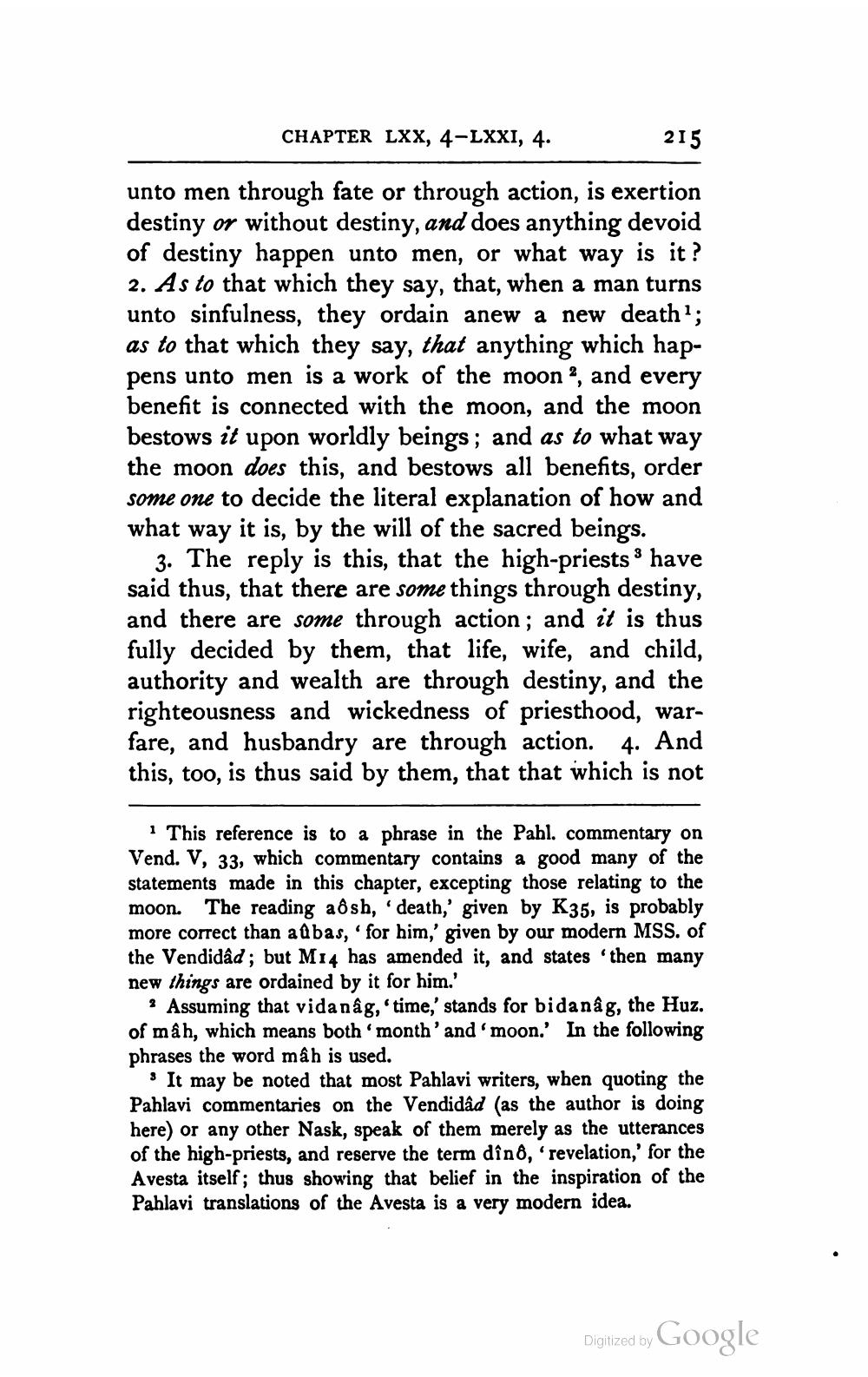________________
CHAPTER LXX, 4-LXXI, 4.
215
unto men through fate or through action, is exertion destiny or without destiny, and does anything devoid of destiny happen unto men, or what way is it? 2. As to that which they say, that, when a man turns unto sinfulness, they ordain anew a new death?; as to that which they say, that anything which happens unto men is a work of the moon ?, and every benefit is connected with the moon, and the moon bestows it upon worldly beings; and as to what way the moon does this, and bestows all benefits, order some one to decide the literal explanation of how and what way it is, by the will of the sacred beings.
3. The reply is this, that the high-priests have said thus, that there are some things through destiny, and there are some through action; and it is thus fully decided by them, that life, wife, and child, authority and wealth are through destiny, and the righteousness and wickedness of priesthood, warfare, and husbandry are through action. 4. And this, too, is thus said by them, that that which is not
This reference is to a phrase in the Pahl. commentary on Vend. V, 33, which commentary contains a good many of the statements made in this chapter, excepting those relating to the moon. The reading aôsh, 'death,' given by K35, is probably more correct than a û bas, for him,' given by our modern MSS. of the Vendidad; but M14 has amended it, and states then many new things are ordained by it for him.'
? Assuming that vidanag, time,' stands for bidana g, the Huz. of mah, which means both month' and moon.' In the following phrases the word mâh is used.
It may be noted that most Pahlavi writers, when quoting the Pahlavi commentaries on the Vendidad (as the author is doing here) or any other Nask, speak of them merely as the utterances of the high-priests, and reserve the term dîno, 'revelation,' for the Avesta itself; thus showing that belief in the inspiration of the Pahlavi translations of the Avesta is a very modern idea.
Digitized by Google




